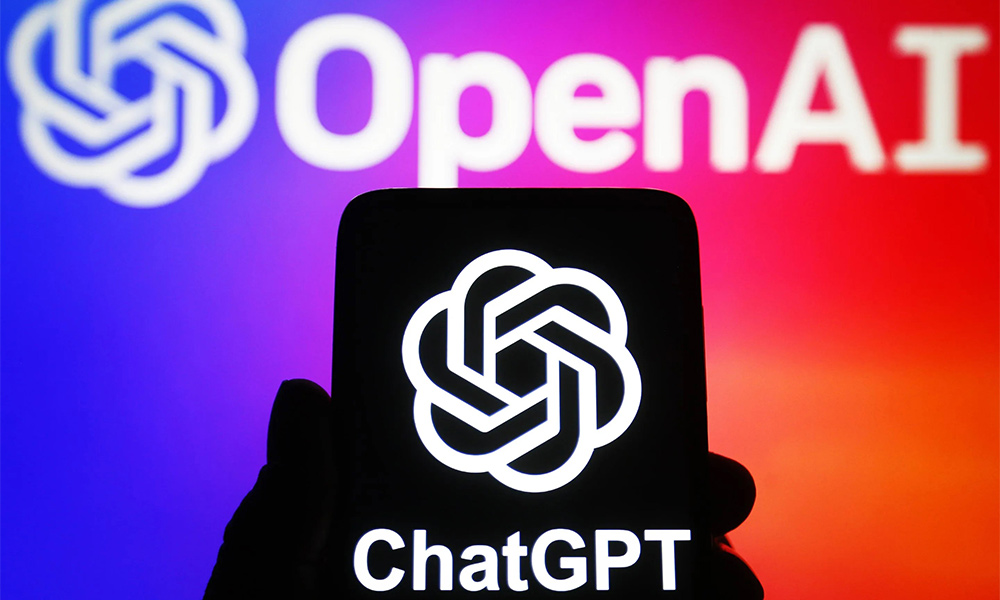
高管們通常不會支持對他們所在行業(yè)進行更多監(jiān)管。但是ChatGPT及其同類產(chǎn)品是如此強大,而且它們將給社會帶來如此深遠的影響,因此監(jiān)管機構(gòu)現(xiàn)在就需要介入。
這是ChatGPT背后的企業(yè)OpenAI首席技術(shù)官米拉·穆拉蒂的說法。
穆拉蒂在周日發(fā)表的《時代》周刊采訪中說:“我們是一個小團體,我們需要更多的投入,尤其是更多超出技術(shù)范圍的投入——當然,監(jiān)管機構(gòu)和政府以及其他所有人都需要介入。”
ChatGPT是“生成式人工智能”產(chǎn)品,它指的是可以在幾秒鐘內(nèi)根據(jù)簡單的文本提示提供答案、圖像甚至樂曲的工具。但黑莓公司(Blackberry)的研究人員本周警告稱,ChatGPT也將用于基于人工智能技術(shù)的網(wǎng)絡(luò)攻擊。
為了提供這樣的工具,人工智能企業(yè)需要云計算資源,而這種云計算資源只有少數(shù)科技巨頭才能提供,因此他們正在與微軟、谷歌和亞馬遜等公司建立合作關(guān)系,從而獲得豐厚利潤。除了引起反壟斷的擔憂,這樣的合作更有可能使生成式人工智能工具迅速接觸到大量受眾——可能比社會預(yù)期的還要快。
ChatGPT的推出讓人們“惶恐不安”
穆拉蒂在接受《時代》周刊采訪時提到了ChatGPT,他說:“我們并沒有預(yù)料到推出新產(chǎn)品會帶來這么大的反響。事實上,我們甚至對推出新產(chǎn)品感到有些惶恐不安。”
然而,瑞銀(UBS)分析師本周指出,自11月底推出以來,ChatGPT的月度活躍用戶已達到1億,用戶增長速度快于TikTok或Instagram。他們補充說:“在關(guān)注互聯(lián)網(wǎng)領(lǐng)域的20年里,我們想不出有哪個消費者互聯(lián)網(wǎng)應(yīng)用發(fā)展得這么快。”
與此同時,在微軟與OpenAI合作的壓力下,谷歌正加緊努力,向消費者提供更多這樣的人工智能工具。周五,谷歌宣布向Anthropic投資3億美元,該公司開發(fā)了ChatGPT的競品:一款名為Claude的工具。
Anthropic主要是由OpenAI的前員工創(chuàng)辦的,他們擔心該工具的商業(yè)利益會超越開發(fā)者對人工智能安全方面的擔憂。
人工智能“可能被濫用,也可能會被不法分子利用。”穆拉蒂在接受《時代》周刊采訪時表示。“所以,接下來的問題是如何在全球范圍內(nèi)管理這項技術(shù)的使用。如何以符合人類價值觀的方式管理人工智能的使用?”
“強大的人工智能帶來威脅”
2015年,埃隆·馬斯克(Elon Musk)幫助創(chuàng)建了非營利組織OpenAI,但現(xiàn)在OpenAI已經(jīng)不再是非營利組織了。特斯拉首席執(zhí)行官曾警告過先進人工智能對人類構(gòu)成的威脅, 12月,他稱ChatGPT是“很有價值卻可以帶來威脅的工具”,并補充說,“我們離強大的人工智能帶來的威脅不遠了。” 他在2020年發(fā)推文說,他對OpenAI的安全性“信心不足”,并指出它一開始是開源和非營利的,“現(xiàn)在已經(jīng)背離了這兩項初衷”。
微軟聯(lián)合創(chuàng)始人比爾·蓋茨(Bill Gates)最近表示:“人工智能將成為2023年最熱門的話題。你知道嗎?這合情合理。人工智能和個人電腦、互聯(lián)網(wǎng)一樣重要。”
億萬富翁企業(yè)家馬克·庫班(Mark Cuban)上個月表示:“想象一下GPT 10會是什么樣子。”他補充說,生成式人工智能“確實很強大”,但“我們還處于起步階段”。
當被問及監(jiān)管機構(gòu)介入是否為時過早時,穆拉蒂告訴《時代》周刊:“現(xiàn)在介入并不早。考慮到這些技術(shù)將產(chǎn)生的影響,相關(guān)方都開始參與進來是非常重要的。”(財富中文網(wǎng))
譯者:中慧言-王芳
高管們通常不會支持對他們所在行業(yè)進行更多監(jiān)管。但是ChatGPT及其同類產(chǎn)品是如此強大,而且它們將給社會帶來如此深遠的影響,因此監(jiān)管機構(gòu)現(xiàn)在就需要介入。
這是ChatGPT背后的企業(yè)OpenAI首席技術(shù)官米拉·穆拉蒂的說法。
穆拉蒂在周日發(fā)表的《時代》周刊采訪中說:“我們是一個小團體,我們需要更多的投入,尤其是更多超出技術(shù)范圍的投入——當然,監(jiān)管機構(gòu)和政府以及其他所有人都需要介入。”
ChatGPT是“生成式人工智能”產(chǎn)品,它指的是可以在幾秒鐘內(nèi)根據(jù)簡單的文本提示提供答案、圖像甚至樂曲的工具。但黑莓公司(Blackberry)的研究人員本周警告稱,ChatGPT也將用于基于人工智能技術(shù)的網(wǎng)絡(luò)攻擊。
為了提供這樣的工具,人工智能企業(yè)需要云計算資源,而這種云計算資源只有少數(shù)科技巨頭才能提供,因此他們正在與微軟、谷歌和亞馬遜等公司建立合作關(guān)系,從而獲得豐厚利潤。除了引起反壟斷的擔憂,這樣的合作更有可能使生成式人工智能工具迅速接觸到大量受眾——可能比社會預(yù)期的還要快。
ChatGPT的推出讓人們“惶恐不安”
穆拉蒂在接受《時代》周刊采訪時提到了ChatGPT,他說:“我們并沒有預(yù)料到推出新產(chǎn)品會帶來這么大的反響。事實上,我們甚至對推出新產(chǎn)品感到有些惶恐不安。”
然而,瑞銀(UBS)分析師本周指出,自11月底推出以來,ChatGPT的月度活躍用戶已達到1億,用戶增長速度快于TikTok或Instagram。他們補充說:“在關(guān)注互聯(lián)網(wǎng)領(lǐng)域的20年里,我們想不出有哪個消費者互聯(lián)網(wǎng)應(yīng)用發(fā)展得這么快。”
與此同時,在微軟與OpenAI合作的壓力下,谷歌正加緊努力,向消費者提供更多這樣的人工智能工具。周五,谷歌宣布向Anthropic投資3億美元,該公司開發(fā)了ChatGPT的競品:一款名為Claude的工具。
Anthropic主要是由OpenAI的前員工創(chuàng)辦的,他們擔心該工具的商業(yè)利益會超越開發(fā)者對人工智能安全方面的擔憂。
人工智能“可能被濫用,也可能會被不法分子利用。”穆拉蒂在接受《時代》周刊采訪時表示。“所以,接下來的問題是如何在全球范圍內(nèi)管理這項技術(shù)的使用。如何以符合人類價值觀的方式管理人工智能的使用?”
“強大的人工智能帶來威脅”
2015年,埃隆·馬斯克(Elon Musk)幫助創(chuàng)建了非營利組織OpenAI,但現(xiàn)在OpenAI已經(jīng)不再是非營利組織了。特斯拉首席執(zhí)行官曾警告過先進人工智能對人類構(gòu)成的威脅, 12月,他稱ChatGPT是“很有價值卻可以帶來威脅的工具”,并補充說,“我們離強大的人工智能帶來的威脅不遠了。” 他在2020年發(fā)推文說,他對OpenAI的安全性“信心不足”,并指出它一開始是開源和非營利的,“現(xiàn)在已經(jīng)背離了這兩項初衷”。
微軟聯(lián)合創(chuàng)始人比爾·蓋茨(Bill Gates)最近表示:“人工智能將成為2023年最熱門的話題。你知道嗎?這合情合理。人工智能和個人電腦、互聯(lián)網(wǎng)一樣重要。”
億萬富翁企業(yè)家馬克·庫班(Mark Cuban)上個月表示:“想象一下GPT 10會是什么樣子。”他補充說,生成式人工智能“確實很強大”,但“我們還處于起步階段”。
當被問及監(jiān)管機構(gòu)介入是否為時過早時,穆拉蒂告訴《時代》周刊:“現(xiàn)在介入并不早。考慮到這些技術(shù)將產(chǎn)生的影響,相關(guān)方都開始參與進來是非常重要的。”(財富中文網(wǎng))
譯者:中慧言-王芳
Executives don’t normally encourage more regulation of their industries. But ChatGPT and its ilk are so powerful—and their impact on society will be so profound—that regulators need to get involved now.
That’s according Mira Murati, chief technology officer at OpenAI, the venture behind ChatGPT.
“We’re a small group of people and we need a ton more input in this system and a lot more input that goes beyond the technologies—definitely regulators and governments and everyone else,” Murati said in a Time?interview published Sunday.
ChatGPT is an example of “generative A.I.,” which refers to tools that can, among other things, deliver answers, images, or even music within seconds based on simple text prompts. But ChatGPT will also be used for A.I.-infused cyberattacks, researchers at Blackberry warned this week.
To offer such tools, A.I. ventures need the cloud computing resources that only a handful of tech giants can provide, so they are striking lucrative partnerships with the likes of Microsoft, Google, and Amazon. Aside from raising antitrust concerns, such arrangements make it more likely generative A.I. tools will reach large audiences quickly—perhaps faster than society is ready for.
‘Trepidation’ about ChatGPT release
“We weren’t anticipating this level of excitement from putting our child in the world,” Murati told Time, referring to ChatGPT. “We, in fact, even had some trepidation about putting it out there.”
Yet since its release in late November, ChatGPT has reached 100 million monthly active users faster than either TikTok or Instagram, UBS analysts noted this week. “In 20 years following the internet space, we cannot recall a faster ramp in a consumer internet app,” they added.
Meanwhile Google, under pressure from Microsoft’s tie-up with OpenAI, is accelerating its efforts to get more such A.I. tools to consumers. On Friday, Google announced a $300 million investment in Anthropic, which has developed a ChatGPT rival named Claude.
Anthropic, in turn, was launched largely by former OpenAI employees worried about business interests overtaking A.I safety concerns at the ChatGPT developer.
Artificial intelligence “can be misused, or it can be used by bad actors,” Murati told Time. “So, then there are questions about how you govern the use of this technology globally. How do you govern the use of A.I. in a way that’s aligned with human values?”
‘Dangerously strong A.I.’
Elon Musk helped start OpenAI in 2015 as a nonprofit, which it no longer is. The Tesla CEO has warned about the threat that advanced A.I. poses to humanity, and in December he called ChatGPT “scary good,” adding, “We are not far from dangerously strong AI.” He tweeted in 2020 that his confidence in OpenAI’s safety was “not high,” noting that it started as open-source and nonprofit and that “neither are still true.”
Microsoft co-founder Bill Gates recently said, “A.I. is going to be debated as the hottest topic of 2023. And you know what? That’s appropriate. This is every bit as important as the PC, as the internet.”
Billionaire entrepreneur Mark Cuban said last month, “Just imagine what GPT 10 is going to look like. He added that generative A.I. is “the real deal” but “we are just in its infancy.”
Asked if it’s too early for regulators to get involved, Murati told Time, “It’s not too early. It’s very important for everyone to start getting involved, given the impact these technologies are going to have.”






